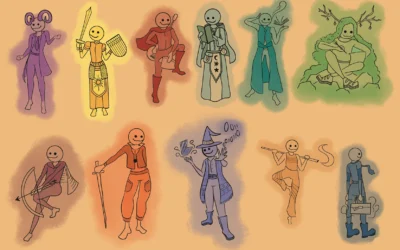After spending about 10 winters in Canada and four in Edmonton, I can say that wintertime can get pretty lonely since it is harder to engage in outdoor activities and I don’t necessarily feel like going outside. I always catch myself looking for ways to fight loneliness during winter and for this article, I asked two of my close friends to help me by sharing their ways of combating loneliness.
For Fatima Mammadova, the isolation of winter is often the result of the drop in temperatures and increased difficulty in going out. “I regularly observe family, friends, and newcomers struggle with the feeling of loneliness,” she says, “especially if they have moved from warmer climates, socialized with family, friends, and neighbors, etc. on a regular basis, or developed hobbies that they are unable to do during cold winter days.”
Having moved to Canada as an international student, Mammadova notes that she has first-hand experience with loneliness, but that she has also “developed some strategies overtime” that have helped her, and which she hopes will help others.
“I have found that volunteering is one of the most rewarding experiences that also helps develop social connections, make new friends, and gain a sense of belonging. Over the years, I have volunteered with a number of organizations where I not only felt like I made an impact, but also gained valuable friends, and met some amazing people,” she says.
As hard as it might be to get out of the house and be social, Mammadova encourages us to consider the positive aspects of winter, too. “Cold winter days might seem dreadful for many but they also provide a great opportunity to develop some of the hobbies we always wanted to do but never had a chance to develop,” she says. For Mammadova these might include “attending local events, workshops, or seminars,” but there are many more, such as joining a book club, taking up whittling, or learning how to knit — all of which can be done in the company of others, but also comfortably indoors. New hobbies aren’t just a way to keep busy, according to Mammadova. “I found that developing hobbies not only allows you to add meaningful experiences to your life, but also helps you to connect with others, motivates you, and helps you to combat loneliness.”
“Loneliness is a struggle that each one of us might face or have faced at some point in our lives,” Mammadova observes, but “developing certain habits, in my case, volunteering, pursuing new hobbies and participating in social events and activities, can be of great help in combating the feeling of loneliness.”
Ilkin Bakhishov considers loneliness from a more philosophical perspective. “I think there are two types of loneliness,” he says, “First is the social isolation, when you don’t have a family, friends, no one with whom you could spend your time with. The second is feeling lonely on a spiritual level — internal loneliness.”
For Bakhishov, feeling like part of a community is essential in fighting the first kind of loneliness, but it is also difficult without a social support network. Addressing the second kind of loneliness helps, though.
“Spending time doing my favourite activities and hobbies also helps me fight loneliness. I love to go for walks and just think quietly because I think that it is important to have some time to organize my thoughts,” he says, adding that knowing himself and becoming comfortable being on his own has been important.
“Self-respect and care are very important to fight loneliness. For example, when I spend a little bit of time taking care of myself, such as not overworking myself, or simply going for a drive, I instantly feel better as it calms me down and helps me accept that it is okay and is sometimes beneficial to be alone from time to time. Focusing on my goals and outlining a clear plan of achieving them also helps me combat loneliness, because it gives me a sense of purpose and something to live for.”
Edmontonian winters can make me feel quite lonely, too, however, having different activities to do helps me socialize with others, which helps me fight loneliness. I find that getting involved in clubs, participating in events, or joining a cultural community really helps one socialize and meet people.
During my time at MacEwan University, I have and continue to be involved in clubs, which is where I meet most of my friends, with whom I make plans to go out, especially during the winter break, when we are not drowning in school work. Attending social events, or birthday parties also helps me socialize with my family and friends, which also helps with combating loneliness.
However, I have started to notice that if one occupies himself/herself with activities they enjoy doing, even by themselves, that person does not feel alone. For example, I am obsessed with organizing things, so I find it very amusing and gratifying if I finally get the chance to organize my room or my schedule. I find that if I am doing something I really enjoy, I do not feel lonely; whereas even if I am surrounded by hundreds of people, but we are not doing anything enjoyable, I will feel lonely even in a large crowd.
As a tip, I would say that it is important to socialize to not feel alone; however, it is also important to occupy oneself with activities, however minor, to help create a feeling of purpose, which is the complete opposite of the feeling of loneliness.
Photograph from Rawpixel




0 Comments